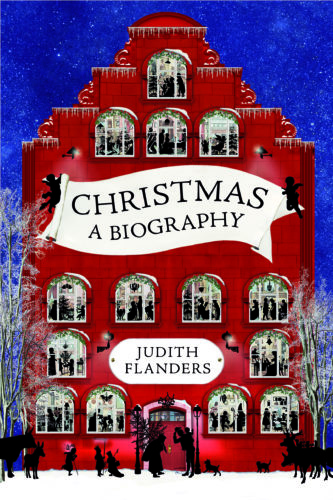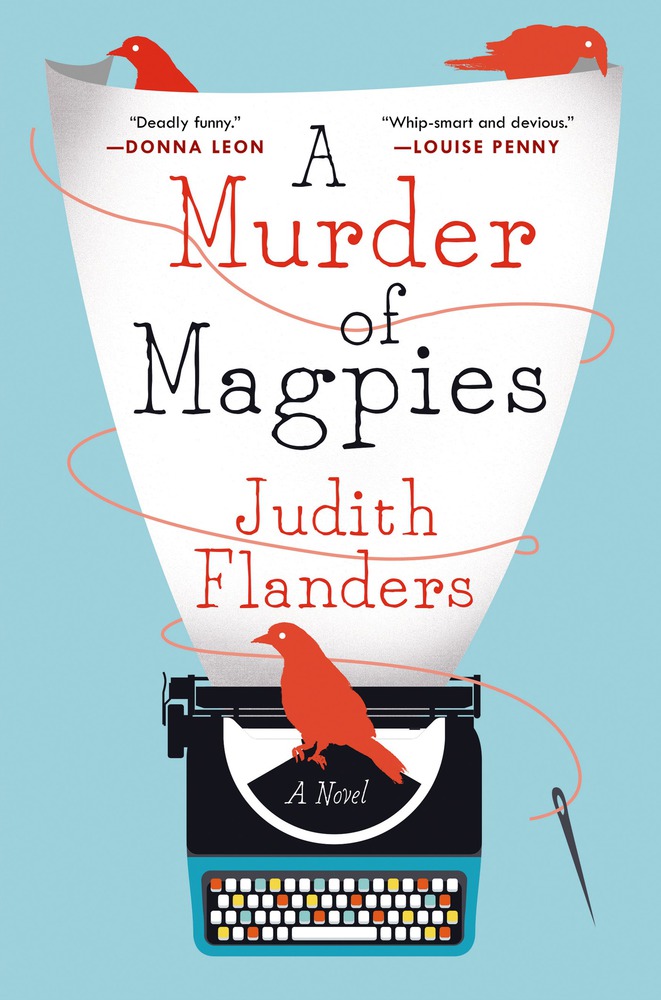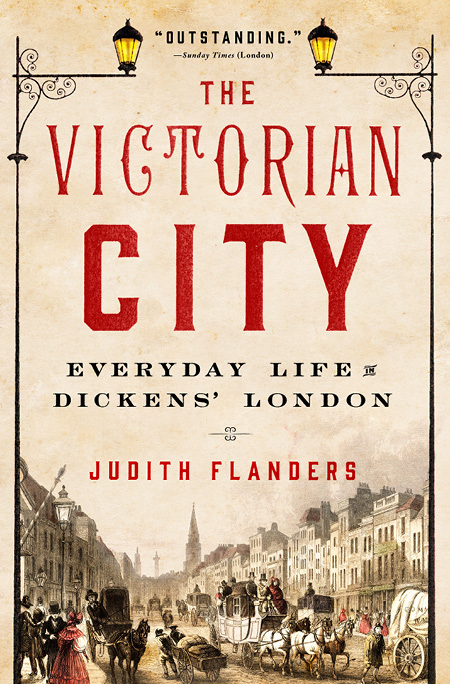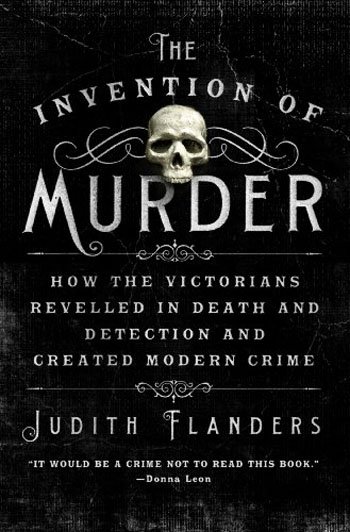 Christmas has been all things to all people: a religious festival, a family celebration, a time of eating and drinking. Yet the origins of the customs which characterise the festive season are wreathed in myth.
Christmas has been all things to all people: a religious festival, a family celebration, a time of eating and drinking. Yet the origins of the customs which characterise the festive season are wreathed in myth.
When did turkeys become the plat du jour? Is the commercialisation of Christmas a recent phenomenon, or has the emphasis always been on spending? Just who is, or was, Santa Claus? And for how long have we been exchanging presents of underwear and socks?
Food, drink and nostalgia for Christmases past seem to be almost as old as the holiday itself, far more central to the story of Christmas than religious worship. Thirty years after the first recorded Christmas, in the fourth century, the Archbishop of Constantinople was already warning that too many people were spending the day not in worship, but dancing and eating to excess. By 1616, the playwright Ben Jonson was nostalgically recalling the Christmases of yesteryear, confident that they had been better then.
In Christmas: A Biography, acclaimed social historian and best-selling author Judith Flanders casts a sharp and revealing eye on the myths, legends and history of the season, from the origins of the holiday in the Roman empire to the emergence of Christmas trees in central Europe, to what might just possibly be the first appearance of Santa Claus – in Switzerland! – to draw a picture of the season as it has never been seen before.
(a list of primary and secondary sources for Christmas: A Biography can be found on the Bibliography page, while details Chapter Notes can be found here )
Praise for “Christmas: A Biography”
“…Flanders is too inquisitive, too ferociously intelligent to recite an indictment to Mammon. This is a book that explains wassailing, the growth of mistletoe, the origins of the mince pie, the ubiquity of the Christmas tree (no, not all down to Prince Albert) and the emergence of Santa as a captain of industry. But there is much more to the story. This is a tale where Goethe, Washington Irving and the growth of Tammany Hall all make dramatic entrances in the manner of welcome Christmas guests. They all are called to give evidence in the prosecution of a case that states that the Christmas story is not that of a religious festival corrupted by commerce. It is much, much more interesting than that.”
Morning Herald
“A Murder of Magpies”
 A whip-smart, impeccably crafted debut mystery, A Murder of Magpies takes readers on a whirlwind tour of London and Paris with an unforgettably original new heroine
A whip-smart, impeccably crafted debut mystery, A Murder of Magpies takes readers on a whirlwind tour of London and Paris with an unforgettably original new heroine
It’s just another day at the office for London book editor Samantha “Sam” Clair. Checking jacket copy for howlers, wondering how to break it to her star novelist that her latest effort is utterly unpublishable, lunch scheduled with gossipy author Kit Lowell, whose new book will dish the juicy dirt on a recent fashion industry scandal. Little does she know the trouble Kit’s book will cause–before it even goes to print. When police Inspector Field turns up at the venerable offices of Timmins & Ross, asking questions about a package addressed to Sam, she knows something is wrong. Now Sam’s nine-to-five life is turned upside down as she finds herself propelled into a criminal investigation. Someone doesn’t want Kit’s manuscript published and unless Sam can put the pieces together in time, they’ll do anything to stop it.
With this deliciously funny debut novel, acclaimed author Judith Flanders introduces readers to an enormously enjoyable, too-clever-for-her-own-good new amateur sleuth, as well Sam’s Goth assistant, her effortlessly glamorous mother, and the handsome Inspector Field. A tremendously entertaining read, this page-turning novel from a bright new crime fiction talent is impossible to put down.
In the Press
“I had no idea that the publishing world could be so funny… Hilarious, big-hearted, clever, whip-smart and devious. A truly wonderful crime novel by a brilliant writer… Judith Flanders has found that difficult, magical ground between humour and crime, where the death is never trivialized, but the territory is hysterically pilloried. Brava!”
Louise Penny, #1 New York Times bestselling author of The Long Way Home
“Deadly funny. Judith Flanders’ wry take on publishing and murder should be on everybody’s wish list.”
Donna Leon, New York Times bestselling author of By Its Cover
“Wickedly clever… Carefully mixed up and served, with a lot of humor… Here’s hoping Flanders has more to say and will be back with another book.”
San Jose Mercury News
“The array of delightful and believable characters, as well as a neat turn at the end, will leave readers well satisfied and anticipating the next installment.”
Publishers Weekly
“Wickedly funny… the perfect storm of an entertaining read… Loved it.”
London Times
“From the first page you want Samantha Clair to be your new best friend… [Flanders] keeps the reader intrigued and laughing in equal measure.”
Daily Mail (UK)
“Mordantly funny; at last a novel about the world of fashion that seems to find it as ridiculous as I do.”
Philip Kerr, author of A Man Without Breath
The Victorian City
 From the critically acclaimed author of The Invention of Murder, an extraordinary, revelatory portrait of everyday life on the streets of Dickens’ London.
From the critically acclaimed author of The Invention of Murder, an extraordinary, revelatory portrait of everyday life on the streets of Dickens’ London.
The nineteenth century was a time of unprecedented change, and nowhere was this more apparent than London. In only a few decades, the capital grew from a compact Regency town into a sprawling metropolis of 6.5 million inhabitants, the largest city the world had ever seen. Technology—railways, street-lighting, and sewers—transformed both the city and the experience of city-living, as London expanded in every direction. Now Judith Flanders, one of Britain’s foremost social historians, explores the world portrayed so vividly in Dickens’ novels, showing life on the streets of London in colorful, fascinating detail.
From the moment Charles Dickens, the century’s best-loved English novelist and London’s greatest observer, arrived in the city in 1822, he obsessively walked its streets, recording its pleasures, curiosities and cruelties. Now, with him, Judith Flanders leads us through the markets, transport systems, sewers, rivers, slums, alleys, cemeteries, gin palaces, chop-houses and entertainment emporia of Dickens’ London, to reveal the Victorian capital in all its variety, vibrancy, and squalor. From the colorful cries of street-sellers to the uncomfortable reality of travel by omnibus, to the many uses for the body parts of dead horses and the unimaginably grueling working days of hawker children, no detail is too small, or too strange. No one who reads Judith Flanders’s meticulously researched, captivatingly written The Victorian City will ever view London in the same light again.
Praise for “The Victorian City”
“Ms. Flanders is a beguiling guide, drawing on Dickens’s writings to create an irresistible portrait of the English capital […] “The Victorian City” is the perfect companion to Dickens’s work. It is not necessary to be familiar with his novels in order to savor this portrait of the 19th-century metropolis in all its odoriferous particularity—the cress-sellers and the costermongers, the brothels and gin palaces, the scaffolding and slaughterhouses. But for lovers of his books it will confirm, once again, with what accuracy and sincere feeling he wrote.
Elizabeth Lowry, Wall Street Journal
“Flanders [does] an astounding job of recreating every nook and cranny of London in this richly detailed compendium. Flanders tells the epic story of this biggest and boldest Victorian city in all its complexity, with verve, color and a straightforward approach to language that still manages to give a voice to ordinary Londoners — something Dickens would no doubt approve of.”
J.P. O’Malley, NPR
“[Flanders’] imagery is often intense and striking… The streets of London were a constant assault on the senses with their noise and smell. This is a superb portrait of an exciting, thriving, and dangerous city.”
Booklist, starred review
“A well-stuffed compendium on the transformational era in the history of London that fed both Charles Dickens’ imagination and his well of outrage…. Flanders writes with bubbling enthusiasm about the old markets, Covent Garden and Smithfield, with their accompanying din and smells, and the plethora of life we only know through Dickens’ eyes: the street vendors and artists, matchstick sellers, slum dwellers, prostitutes, habitués of gin palaces and prisoners. A terrific companion while reading Boz himself.”
Kirkus
“Flanders successfully recreates the feel of London at Dickens’s peak as she delves deep into the rhythms and architecture of particular neighborhoods…. Flanders’s expertise shines when exposing Dickens’s embellishments, particularly when his character Fagin faces execution rather than the less powerful but more realistic punishment of deportment. This well-researched sociological overview provides highly detailed context for cultural touchstones, while shattering the popular yet inauthentic image of a pristine Victorian age that never existed.”
Publishers Weekly
“Judith Flanders’s evocative and detailed survey of daily living in Victorian London, from the murk and the misery to the downright odd, is outstanding…”
The Sunday Times
“The Victorian City is full of detail and colour about everyday life in Dickens’s London, and leaves you with a sense not only of how hard life was then, but how strange. Even if you’ve read Dickens and the contemporary historians of the poor, there is still more to marvel at here.”
Sebastian Faulks, Books of the Year, Daily Mail
“Judith Flanders’s The Victorian City [is] a brilliant survey of 19th-century London that synthesises an extraordinary range of material. No other book I know conveys so well the texture of the sprawling, often anarchic metropolis — the sights, sounds and smells. Subtitled Everyday Life in Dickens’s London, it will enrich your reading not only of Dickens but also of Wilkie Collins, Conan Doyle and any other Victorian writer who used London as a setting.”
Books of the Year: Andrew Taylor, Spectator
“The Invention of Murder”
 Murder in the nineteenth century was rare. But murder as sensation and entertainment became ubiquitous, with cold-blooded killings transformed into novels, broadsides, ballads, opera, and melodrama—even into puppet shows and performing dog-acts. Detective fiction and the new police force developed in parallel, each imitating the other—the founders of Scotland Yard gave rise to Dickens’s Inspector Bucket, the first fictional police detective, who in turn influenced Sherlock Holmes and, ultimately, even P.D. James and Patricia Cornwell.
Murder in the nineteenth century was rare. But murder as sensation and entertainment became ubiquitous, with cold-blooded killings transformed into novels, broadsides, ballads, opera, and melodrama—even into puppet shows and performing dog-acts. Detective fiction and the new police force developed in parallel, each imitating the other—the founders of Scotland Yard gave rise to Dickens’s Inspector Bucket, the first fictional police detective, who in turn influenced Sherlock Holmes and, ultimately, even P.D. James and Patricia Cornwell.
In this meticulously researched and engrossing book, Judith Flanders retells the gruesome stories of many different types of murder, both famous and obscure: from Greenacre, who transported his dismembered fiancée around town by omnibus, to Burke and Hare’s bodysnatching business in Edinburgh; from the crimes (and myths) of Sweeney Todd and Jack the Ripper, to the tragedy of the murdered Marr family in London’s East End. Through these stories of murder—from the brutal to the pathetic—Flanders builds a rich and multi-faceted portrait of Victorian society. With an irresistible cast of swindlers, forgers, and poisoners, the mad, the bad and the utterly dangerous, The Invention of Murder is both a mesmerizing tale of crime and punishment, and history at its most readable.
Buy this Book:
NPR: The Diane Rehm Show
“The Invention Of Murder,” chronicles the way that murder stories seeped into all forms of 19th century entertainment, from the absurd like wax museums and “murder tourism” to the theatre, novels and detective stories we love today. Judith Flanders joins guest host Frank Sesno to talk about the evolution of the real — and fictional — crime story.
Interview on C-Span’s Book TV
The Daily Beast Interview
Pleasant Thoughts of Murder in the Victorian Era
Murder ‘is very pleasant to think about in the abstract,’ as the Victorians proved with their obsessive interest in the macabre. Judith Flanders talks about her new book and how she ended up on the murder-history beat.
Victorian aficionado and British historian Judith Flanders begins her book on murder with some wise words from Thomas De Quincey: “Pleasant it is, no doubt, to drink tea with your sweetheart, but most disagreeable to find her bubbling in the tea-urn.” Even more enjoyable, though, he surmises, is to read about someone else’s sweetheart bubbling away. As Flanders demonstrates in her book, the Victorians loved to read about murder, and the newspapers took great pains to give the public what they wanted; even “prosperous, middle-class readers were avid for crime stories.” Indeed, murder so captured the public imagination that stories of dastardly crimes dominated popular entertainment in all its guises—from plays to poems and even the races, where greyhounds and horses were named after famous felons. Given the success of Flanders’s book in the U.K. and other recent histories like it (Kate Summerscale’s The Suspicions of Mr. Whicher, for example), it would also appear that the tastes of modern audiences are similarly inclined.
“I think what people like, in all kinds of nonfiction, including history,” Flanders explains when I meet her in London’s British Library, “is stories.” And The Invention of Murder certainly gives her reader plenty to choose from: a plethora of murder cases documented in all their gory details, from the well known, such as Burke and Hare the Edinburgh-based murderers who sold their victims’ corpses to the medical school for dissection, and the notorious Whitechapel murderer Jack the Ripper, through middle-class female poisoners, jealous husbands and wives, to wrongfully accused servants. Recalling the pathetic defense of one such unlucky teenager whose only argument was “My Lord, I didn’t do it,” sees Flanders’s eyes well up. “It’s heartbreaking,” she says. (read more)
Praise for “The Invention of Murder”
“Judith Flanders’s wonderful, sometimes appalling “The Invention of Murder” is a guidebook to notably grisly true-life tales. […] Yet murders considered in themselves are merely Ms. Flanders’s starting point for her real interest: the Victorian public’s growing taste for blood.”
Wall Street Journal
“An endlessly absorbing new history of the notorious killers and legendary detectives of the 19th century… a panorama of strange and interesting information.”
Laura Miller, Salon (read full review)
“…a masterful and meticulous discussion of Victorian murder and its representation in fiction and theater — the “ripped from the headlines” of today’s Law & Order applied to the 19th century. […] Flanders displays some impressive literary sleuthing…”
Elizabeth Foxwell, Washington Independent Review of Books
Social historian Flanders (Inside the Victorian Home: A Portrait of Domestic Life in Victorian England) does a superb job of demonstrating the role that the press and fiction writers played in shaping the British public’s attitudes toward crime during the 19th century. She captures perfectly the appeal of bloody fiction and macabre news stories: “Crime, especially murder, is very pleasant to think about in the abstract: it is like hearing blustery rain on the windowpane when sitting indoors.” But it’s unlikely that the British thought of murder much at all during the first decade of the 19th century—in 1810, there were a mere 15 murder convictions in England and Wales combined. The public’s perception of random lethal violence changed with the horrific 1811 Ratcliffe Highway killings, brutal mass murders in London’s East End that coincided with technological advances that enabled swifter and cheaper production of broadsheets describing the crimes. Flanders’s convincing and smart synthesis of the evolution of an official police force, fictional detectives, and real-life cause célèbres will appeal to devotees of true crime and detective fiction alike.
Publishers Weekly (Starred review)
“Brilliantly researched and rendered, this is an indispensible read for anyone—scholars and the general public alike—who harbors an interest in the evolution of the notion and representation of murder….Flanders presents a fascinating narrative in well-crafted and at times suitably ironic praise.”
Library Journal (Starred review)
‘This is much more than a compendium of famous crimes. As such books as The Victorian House and Consuming Passions have demonstrated, Flanders’s knowledge of the period is both wide and extraordinarily deep. She writes incisively and often with dark wit. Best of all, she has a wonderful ability to make connections and to show us familiar sights from unexpected angles. All of these qualities are displayed to the full in The Invention of Murder.’
Independent (full review)
‘Judith Flanders displays a profound understanding of the Victorian age, encyclopaedic knowledge of crime and criminals, and the popular reactions towards both. Further, she presents it with a sly, wry humour that is a perfect complement to the subject. Dare I say it would be a crime not to read this book?’
Donna Leon
‘an entertaining excursion into the Victorians’ taste for murder…The cast is full of swindlers and forgers and other doubtful characters’
The Telegraph
‘Flanders has written a book rather like one of the great, rambling Victorian novels that she discusses, though most readers will find her work a lot easier, and a lot more fun […] the sheer sumptuousness of Flanders’s book leaves the reader wanting still more’
Clive Emsley, BBC History Magazine (full review)
‘Flanders’s book is more than a catalogue of crimes … it builds into an alternative history of the Victorian age, its narrow, purposeful focus providing a means of seeing, from an oblique perspective, terrain which might previously have seemed familiar.’
Jonathan Barnes, Times Literary Supplement (full review)
‘Judith Flanders has produced a compelling study of how crime, and crime prevention, emerged as a popular obsession in 19th-century Britain, and came to dominate its literature …The Invention of Murder is mesmerizing.’
Charlotte Gray, Globe and Mail (full review)
‘…part social history, part literary history, and part penny-blood itself. In the fine tradition of its subject it both has its cake and eats it. Yum. Strychnine’
Sam Leith, Spectator (full review)
‘Flanders brings to her writing a vivid storyteller’s and nicely understated gallows humour […] More important though, and far more impressive, is her tenacity in stripping away the gaudy layers of folktale and legend around the period’s most notorious murders and revealing how often these inventions obscured lives of heartbreaking ordinariness.’
Robert Douglas-Fairhurst, Telegraph (full review)
‘…plenty of gruesome detail, but also a dry humour… The Invention of Murder is a valuable and well-researched account of Victorian society in Britain and its growing fascination with the ultimate crime. […] All human death is here.’
The Irish Times (full review)
‘This excellent, well-written and hugely well-informed history of Victorian murder will also provide you with plenty of appalling enjoyment of the Fine Art Of Murder.’
Peter Lewis, Daily Mail (full review)
‘[a] remarkable history […] To suggest that the Victorians invented murder may sound like a stretch too far. But like a detective, forensic expert and barrister rolled into one, Flanders has marshalled her clues, scrutinised her evidence and proved her case beyond reasonable doubt.’
Wendy Moore, Sunday Telegraph (full review)
‘a book jam-packed with fascinating details, not only about the Victorian attitude to murder, but much else besides…’
Craig Brown, Mail on Sunday (full review)
‘a penetrating study of the way in which murder can take hold of the creative imagination.’
DJ Taylor, Independent on Sunday (full review)
A study of the roots of our fascination with violent crime fascinates Andrew Motion
Andrew Motion, Guardian (read review)
‘a book that should be on the shelves of every crime novel reader and crime novel writer’
Stuart Kelly, Scotland on Sunday (read full review)
‘The Invention Of Murder is what great non-fiction should be; as erudite as it is entertaining, as gripping as fiction…’
The Scotsman (read full review)
‘Flanders’s engrossing new history book … peeps under the rug at a far less salubrious side of Georgian and Victorian manners…’
Andrew Holgate, Sunday Times (read full review)

